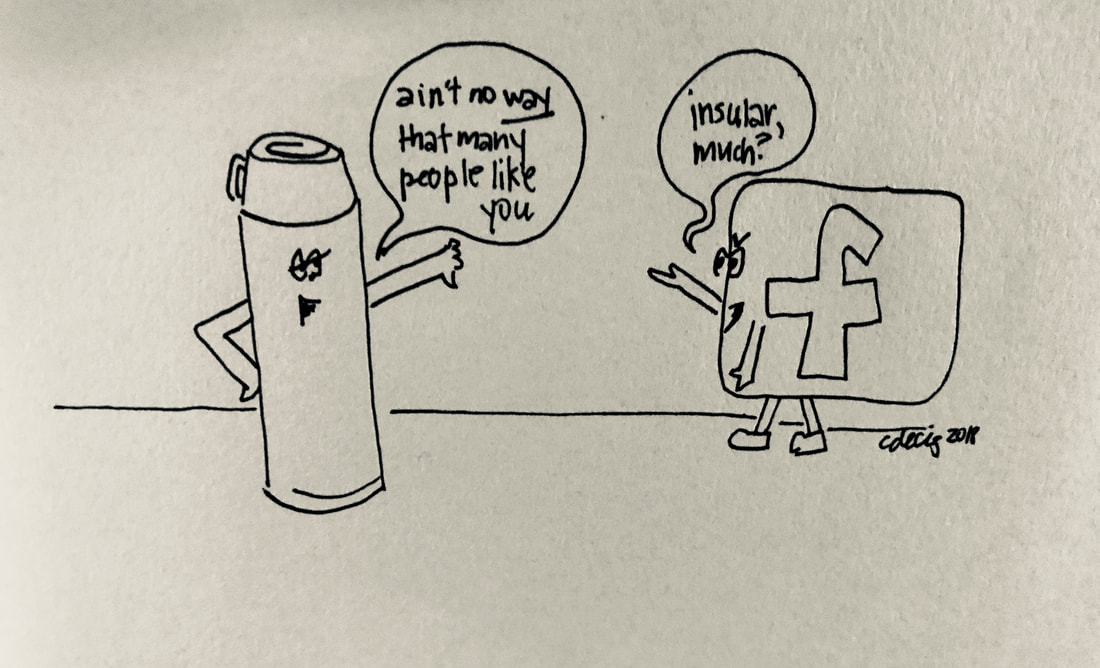|
All human behavior exists in each of us, on a spectrum. Not unrelated to our gene expression, some of us experience some behaviors more than others, but all have the capacity in a biological sense for all behaviors. Let this set the framework for a discussion about the topic of becoming too insular.
We are all creatures of habit. Habit breeds security and comfort from routine and reliability. We biologically relax and are our more natural selves in known circumstances; less so in unknown. As biological organisms we are “pre-set” to tend towards situations we have identified as easier and safer, in this case, by familiarity. We are also social organisms. Historically, Homo sapiens live in groups that over time evolved into societies that are co-dependent and mutually beneficial. Our natural “setting” is to regularly interact and exist in a society with others, to survive the stressors of life. Throughout history, around the world, this model has successfully repeated itself. Fast forward to modern day society in the United States. Making sweeping cultural generalizations, here is what we find: family units each in their own households, working long hours to support themselves (children, spouses, etc) each living parallel to each other, rather than in a network. Frequently, we are so dominated by providing for our immediate needs we no longer have time to expand and attend to our social needs. We are also turned inward by our addictions to technology, social media, instant gratification and convenience. Really, in today’s world, no one is fully immune. Combining our default setting to what is familiar, the societal pressures putting us in isolated lanes, modern living, and our biological imperative for social interaction, we often find ourselves today unable to meet all our needs. We end up becoming insular: closed off to other experiences around us and entrenched in the demands and routines of our daily lives. Long term it is not healthy for us, and in fact, this sort of isolation is a hallmark of depression. Let’s return to the “digging the hole” analogy from a few posts back. If we are creatures of habit and routine, and remembering neuroplasticity capabilities of our brain we have also previously discussed, then it follows our best choice is to awkwardly demand ourselves to be more social, until it feels more integrated, natural and safe to us. We have to swim against the current in which we find ourselves today with technology, financial demands and societal expectations to meet this basic need of interaction. We have talked about building support systems in posts before and this is not very different- expanding the network and making human connections is a necessary part of a healthy lifestyle. The ways in which we might do this today have changed from even a decade ago- but the opportunities are there if you risk them. Come to my couch and talk about obstacles you face that isolate you. Let’s talk about how to identify safe opportunities to end your loneliness and bring you more support! (C) 2018 Creatively, LLC Comments are closed.
|
get more from The Creativity CoursesLiking educational topics and knowing what's hot in creativity? Creatively has online courses, with an interactive creative community, coaching sessions and more in the Creativity Courses. Want these blogposts in a newsletter? Subscribe here, and get a free gift. Cindy Cisnerosis a Creativity Coach, Creative Therapist and Professional Artist in Sykesville, Maryland. She is an expert straddling the realms of arts, creativity research, psychology, therapy, and coaching. She provides Online Creativity Counseling in Maryland and Virginia, and Online Creativity Coaching throughout the USA, Canada and the UK tailored for the discerning, imaginative, artistic, and neurodiverse. The information provided in this blog is from my own clinical experiences and training. It is intended to supplement your clinical care. Never make major life changes before consulting with your treatment team. If you are unsure of your safety or wellbeing, do not hesitate to get help immediately.
Archives
July 2024
|
|
Concierge Therapy for Creatives in Maryland
Creativity Coaching Worldwide including the USA, UK and Canada |
Telephone |
|


 RSS Feed
RSS Feed

